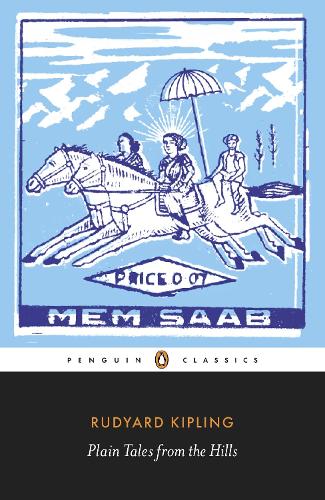
Plain Tales from the Hills
(Paperback)
Publishing Details
Plain Tales from the Hills
By (Author) Rudyard Kipling
Penguin Books Ltd
Penguin Classics
9th June 2011
3rd March 2011
United Kingdom
Classifications
Physical Properties
Paperback
336
Width 129mm, Height 198mm, Spine 19mm
247g
Description
'You are all liars, you English' Plain Tales from the Hills, Rudyard Kipling's first collection of short stories, established his reputation and brought India to the British imagination. Including the stories 'Lispeth', 'Beyond the Pale' and 'In the Pride of His Youth', they tell of soldiers, wise children, exiles, forbidden romances and divided identities, creating a rich portrait of Anglo-Indian society. Originally published for a newspaper in Lahore when Kipling was a journalist, the tales were later revised by him to re-create as vividly as possible the sights and smells of India for readers at home. Far from being a celebration of empire, these stories explore the barriers between races, classes and sexes, and convey all the tensions and contradictions of colonial life. Part of a series of new editions of Kipling's works in Penguin Classics, this volume contains a General Preface by Jan Montefiore and an introduction by Kaori Nagai discussing discussing Kipling's portrayal of the relationship between India and England, the role of the narrator in his Plain Tales, and the revisions that he made to them. Edited with an introduction by KAORI NAGAI Series Editor JAN MONTEFIORE
Reviews
By the Winner of the Nobel Prize in Literature
Author Bio
Rudyard Kipling was born in Bombay, India to British parents on December 30, 1865. In 1871, Rudyard and his sister, Trix, aged three, were left to be cared for by a couple in Southsea, England. Five years passed before he saw his parents again. His sense of desertion and despair were later expressed in his story 'Baa Baa, Black Sheep' (1888), in his novel The Light that failed (1890), and his autobiography, Something of Myself (1937). As late as 1935 Kipling still spoke bitterly of the 'House of Desolation' at Southsea- 'I should like to burn it down and plough the place with salt.' At twelve he entered a minor public school, the United Services College at Westward Ho, North Devon. In Stalky and CO. (1899) the myopic Beetle is a self-caricature, and the days at Westward Ho are recalled with mixed feelings. At sixteen, eccentric and literary, Kipling sailed to India to become a journalist. His Indian experiences led to seven volumes of stories, including Soldiers Three (1888) and Wee Willie Winkie (1888). At twenty-four he returned to England and quickly tuned into a literary celebrity. In London he became close friends with an American, (Charles) Wolcott Balestier, with whom he collaborated on what critics called a 'dime store novel.' Wolcott died suddenly in 1891, and a few weeks later Kipling married Wolcott's sister, Ca
